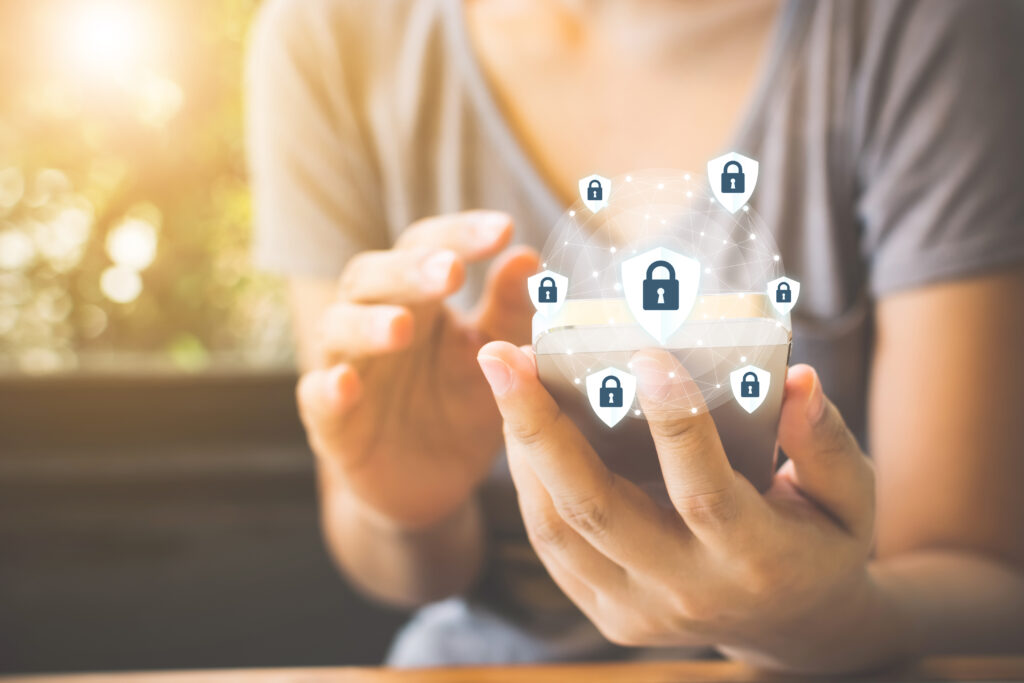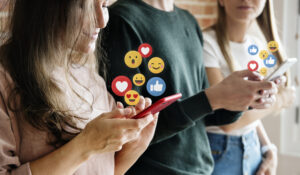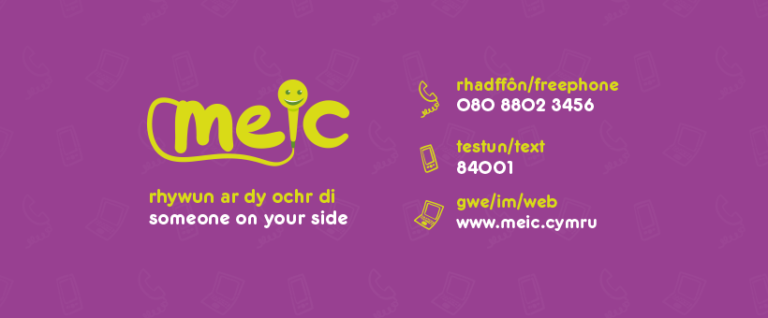Be Aware Of Your Online Safety: Tips To Keep Safe

Don’t worry! We’re not here to tell you that the Internet is bad and that social media is evil – here at Meic we’re big fans of the Internet and social media. Being online is great. It teaches us, entertains us and allows us to be social and keep in touch, much more than we’d be able to otherwise. But with this comes a responsibility to protect yourself and others from the negative side of being online.
This article is also available in Welsh – I ddarllen y cynnwys yma yn Gymraeg – clicia yma
This isn’t a blog to discourage you from having social media accounts and chatting online. We’re here to help you take steps to keep yourself safe and make good decisions about the stuff that you share online.
Think Privacy
Your privacy settings is the most important tool you have to keep yourself safe online. If you’ve never been a victim before then it’s easy to think that nothing bad will happen to you. But it’s much better to protect yourself just in case something bad happens rather than deal with the consequences of it afterwards.
Keep your information private – set your privacy settings so that only your friends can see information about you. Don’t share details like where you live or what school you go to. Make sure that you keep your passwords to yourself – you don’t need to share these with your friends.
SWGfL have a set of downloadable checklists for different platforms to guide you through your profile settings on Facebook, Twitter, Instagram, Snapchat, Roblox and Tik Tok.

You don’t have to share everything
Think about the things that you share. Would you be embarrassed if your parent/grandparent/teacher saw it? Would you say that thing you said in front of someone in real life? If your answer is no, then it’s probably best not to share it. Just because it’s online doesn’t mean it doesn’t have an effect on your real life offline.
Think about reputation. It might not seem important now, but anything you post could stay online forever. People can quickly lose control of their own posts when people start sharing. Think about your situation in 5 or 10 years time. Would you want your future employer seeing some of the things you’ve posted?
Why do you really need people to see where you are at all times? The safest and smartest thing to do is switch locations off on your phone and apps so that people can’t keep track of where you are if their intentions aren’t good.
If someone asks you to share any inappropriate images or comments privately with them, think about how you’d feel if those were shared publicly. Once you hit send you’ve lost control of that image. You might have 100% trust in that person you’ve shared it right now, but what happens if you fall out? It’s also really important for you to know that sharing any sexual images of yourself or others if you’re under 16 is illegal and can get you and the person who receives that image into trouble with the police. Even if someone you really like has asked for a photo you should be strong and say “NO”. If they really like you then they will respect your choice.
Be picky about your friends
Try to only add friends that you know in real life, don’t start adding people because they’re a friend of a friend. You don’t know who they are or what they are like in real life. Imagine that the 14-year-old girl you’re talking to is really a 50-year-old man. If you only add people that you know then you’re protecting yourself.
This is true on gaming platforms as well, not just social media. Don’t share personal information and block, report and mute people that you don’t feel comfortable with. Childline has some safety advice about online gaming.
Think about your online life like your offline life. Would you start talking to some randoms in the street and tell them all kinds of private things about yourself?

Seeing something bad
Have you seen something you don’t like or makes you feel uncomfortable? Is someone saying things to you that you don’t like or isn’t appropriate? Are you concerned about your safety, or someone else’s?
If you’re not happy with something you see online then tell someone you trust and/or report it to CEOP. If it makes you feel uncomfortable, if it’s abusive or you know it shouldn’t be shared online then report it. Social media platforms have their own reporting function too that may link directly to CEOP. You should also use this if you’re concerned about someone else online.
Don’t forget the unfriend, unfollow and blocking options. Losing a friend or follower really isn’t as important as your safety – it’s not always about numbers. It’s much better to keep yourself safe.
Social media detox
Try to have some time away from the screen. We know the thought of this might be horrendous, and that your phone is your connection to everything and everyone in your life, but just try to set some time away from your devices once in a while. Do things with your family. Get creative. Go outside into the fresh air. You might find it does some good to have a break every now and then.
If anything makes you feel uncomfortable or in danger then tell someone straight away. If you don’t feel you can talk to a family member, teacher, youth worker etc. then you can always contact Meic for free. It’s a confidential helpline service that’s here to listen and offer advice and guidance. And don’t forget to report any concerns about online safety to CEOP.
Contact Meic
If you’re worried about anything then Meic can help, with information, advice and advocacy on any issue. We’re here to listen and to work with you to find a way forward. Meic is anonymous and free to contact on the phone, by text or online chat from 8am to midnight, every day of the year.




















